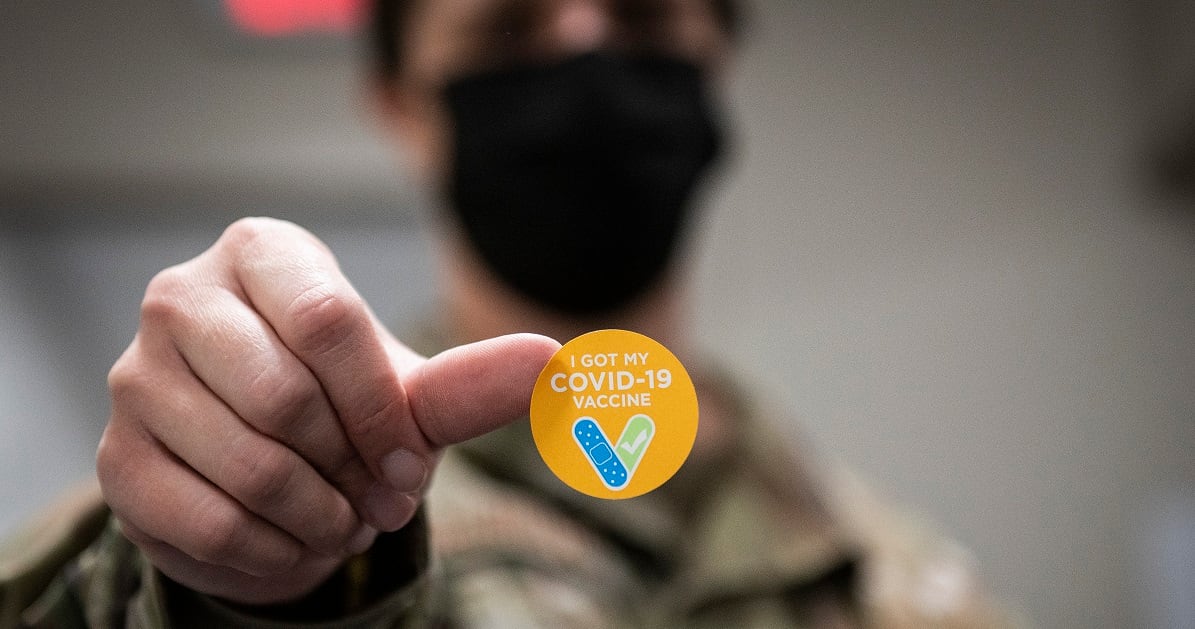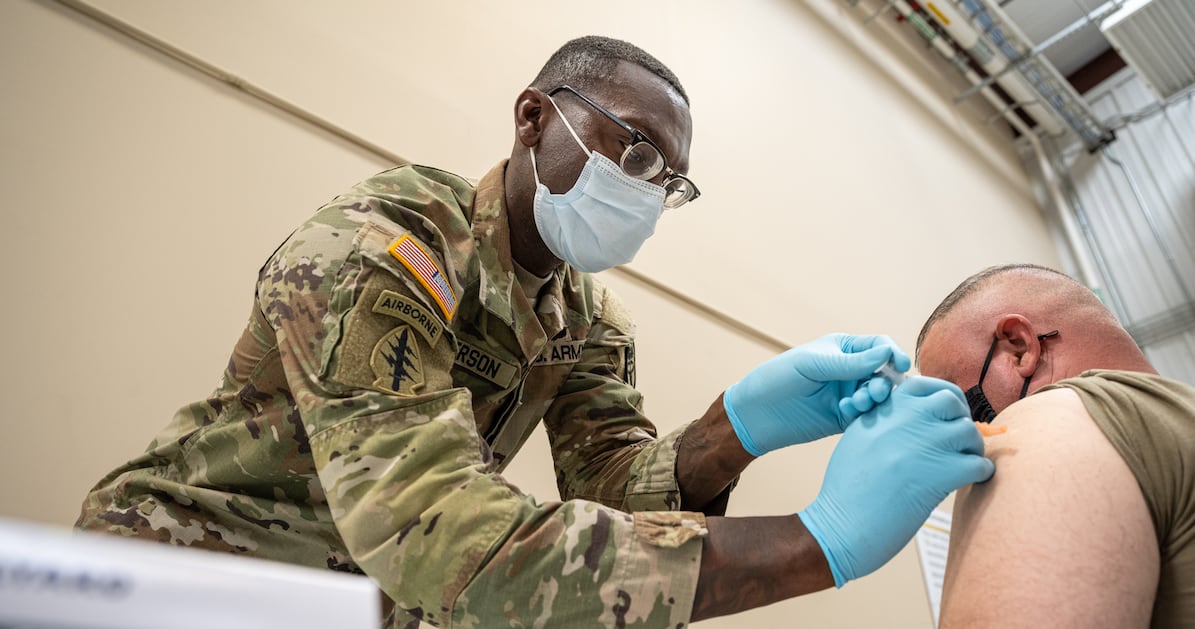A Defense Department Inspector General review of the military’s COVID vaccine exemption process found that while the services largely followed policy when considering waivers, the Army and Air Force routinely overran deadlines, according to a report released Thursday.
The review also found a range of discharge types and reentry codes for service members involuntarily separated after vaccine refusal, leaving some troops with full benefits after being kicked out, while others received partial benefits.
“Prolonged delays in addressing requests for religious accommodations could impact a service member’s job placement and impede the command’s ability to make well-informed deployment and assignment choices,” said Defense Department Inspector General Robert Storch said in a release.
The review began in February 2022, prompted by IG hotline calls alleging that the services were rejecting exemption requests en masse. In June that year, then-Inspector General Sean O’Donnell sent Defense Secretary Lloyd Austin a memo with preliminary findings, including concerns that requests were being processed too quickly and without thorough review.
“The denial memorandums we reviewed generally did not reflect an individualized analysis, demonstrating that the Senior Military Official considered the full range of facts and circumstances relevant to the particular religious accommodation request,” O’Donnell said.
These concerns also prompted multiple lawsuits against DoD and the services, alleging that adjudication authorities were blanketly denying religious waiver requests. One case resulted in a judge halting the Air Force from discharging anyone for vaccine refusal after a waiver denial.
In 2023, after federal legislation required Austin to repeal the mandate in January, DOD settled two of the lawsuits by paying the complainants’ legal fees.
In the end, the IG found that the Army and Air Force actually took longer to approve requests than their policies required.
While the Army has a 90-day deadline for processing requests, the cases reviewed averaged 192 days to receive a decision. In the Air Force, 35 reviewed requests averaged 168 days to adjudication, though the deadline was 30 days.
When Austin announced in August 2021 that the COVID-19 vaccine would become required, vaccine exemptions in the military were rare. Most were for medical or administrative reasons, like an allergy, a pregnancy or someone preparing to separate from service, rather than the highly subjective religious exemption requests that flooded the services after the mandate came down.
Policy requires that “sincerely held religious beliefs” be accommodated as long as they do not impact “military readiness, unit cohesion, good order and discipline, or health and safety.”
The IG found that decision authorities weighed expert advice while considering the health risks of allowing someone to go unvaccinated, and that in the end, each case was examined individually before making a decision.
RELATED

But the “unprecedented number of requests” ― 16,000 from active duty troops as of January 2023 ― slowed down the adjudication process, the IG found.
At the same time, though the services followed DOD guidelines for discharges, those guidelines didn’t have uniform rules for using various types of discharges and reentry codes, which govern whether someone can re-join the military again at a later date.
“As a result, discharged service members experienced different impacts to their educational benefits and eligibility to reenlist in military service after discharge,” according to the report, as most vaccine refusals resulted in general discharges, which specifically denies GI bill benefits.
The IG recommended reviewing the exemption process to find ways to make it more efficient during high-volume periods, as well as creating standardized policy for discharges and reentry codes after vaccine refusal.
DOD accepted both recommendations and has efforts underway to address them, according to the report.
Meghann Myers is the Pentagon bureau chief at Military Times. She covers operations, policy, personnel, leadership and other issues affecting service members.





